Pete Sutton's Blog, page 37
January 23, 2015
Launching the Ship
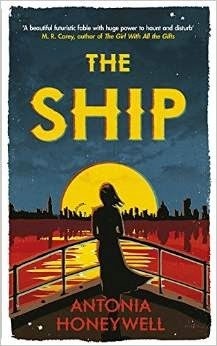
On February 19th, at 6pm at Foyles Cabot Circus, Bristol, Bristol Festival of Literature is proud to bring Antonia Honeywell to Bristol to launch her stunning debut novel - The Ship
Antonia Honeywell's "mind-blowing" debut novel will be released by Weidenfeld & Nicolson in February 2015. The Ship is described as "rites-of-passage novel, a love story and a high-concept thriller", telling the story of a world in collapse, where a wealthy man buys a huge ship to transport a handpicked group of 500 – including his 16-year-old daughter - to a safe destiny. However daughter Lalla begins to question and then challenge her tyrannical father as the ship approaches its destination.
Antonia Honeywell is a graduate of the Curtis Brown novel writing course 2011 and Bristol Festival of Literature is proud to bring Antonia to Bristol to launch the book at Foyles. Antonia will read a passage before being interviewed by Cheryl Morgan, a Hugo award-winning British science fiction critic and owner of Wizard’s Tower Press. There will then be a signing.
The ShipI am living on a ship of my father’s creation. I live with five hundred people whom my father has chosen. We have everything we could ever need – endless freezers full of food, access to music, art, films. Games, craft materials, time to learn, to share, to try. Everything is clean, everyone has work and a purpose. We have an infirmary supplied with medicines and equipment and a doctor who knows how to use them (although he couldn’t save my mother).My father has banished time. He has abolished the days of the week. There are no longer any dates – as he says, we no longer need them. Everyone is so grateful for what we have and so afraid of what we left behind that there is no need for my father to enforce his one rule – that we do not look back. Who wants to remember starvation, homelessness, disease? Governments killing their own people? The petrolheads on the street, the bodies of the dispossessed?But I remember London. I remember our walls dancing orange when the street dwellers lit oildrums in the square. I remember the foul smells of the outside, the hunger and the fear, my mother and I leaving food for the people hiding in the British Museum, where she taught me. I have made friends; I think I might have fallen in love. But Patience in the laundry, Helen in the school, Gerhardt in the kitchen, even Tom, can’t stop me wondering whether I will ever see a fresh egg, or eat an apple. Or why are there twelve cots and a wedding dress in the stores, or why the sun now rises and set on the same side of the ship.My mother is dead and there is no one I can ask. Everyone else was chosen, and they are too grateful to ask questions. But I am my father’s daughter. He did not choose me. Everything I know, I learned at the British Museum. And now I must decide what I am to do next.“mind-blowing….a dystopian novel with a utopian heart that will appeal across genres and age-ranges”Arzu Tahsin, Weidenfeld & Nicolson deputy publishing director.Click here for link to Bookseller press release, and click here for an interview with Antonia.Join the Bristol Festival of Literature Facebook Event page here: https://www.facebook.com/events/15348... RSVP to bristolevents@foyles.co.uk to let us know you are coming
Published on January 23, 2015 02:51
Guest post from David Nielson
Today I have another guest writer from the Refossiling Anthology. David has dropped by to talk about humour in Horror (or because he's from across the pond - humor)
David is a classically-trained actor/storyteller based in Tarrytown/Sleepy Hollow, NY. He performs for audiences of all ages, from Pre-K to adult. So whether you’re interested in madness-inducing one-man show “H.P. Lovecraft’s Call of Cthulhu,” historically-accurate and highly-entertaining presentation of “British Major John Andre Saves the American Revolution,” or hiring his services for a one-of-a-kind birthday party or anything else, head on over to https://neilsenparty.wordpress.com/.

The Humor in Horroror why melting a guy’s face off can be funny
by David Neilsen
Greetings BRSBKBLOG! My name is David Neilsen, and I am one of Peter’s fellow contributing authors for the upcoming Fossil Lake II: The Refossiling. I’m very excited for this anthology on a personal level because while I’ve written and had published a number of horror stories thus far, my contribution to this anthology, Blind Date, is one of my first to be published while fully embracing my original true love- comedy.At first glance, horror and comedy don’t seem like they should mix all that well. Horror wants to make you scream in terror, comedy wants to make you scream with laughter. But at the end of the day they both want to make you scream, and the two go together like ham and cheese (or pickle and cheese for those of you on the other side of The Pond). Terror and laughter are two sides of the same coin- responses to the unknown- and are often interchangeable. Think about it. How many times have you laughed while telling someone a personal anecdote which scared the living daylights out of you at the time? We do it all the time. Sure you nearly peed your pants with fear the night you heard that weird sound coming from the closet, and your hand trembled as you opened the closet door, and you nearly had a heart attack when your cat Scrumptious leaped at your face the minute you opened the door and released her from where she’d been accidentally trapped all day. But the next morning you were on the phone with your best friend yucking it up over the event.What happened to change your mood? Did you decide you hadn’t heard that sound after all? Had Scrumptious not been trapped in your closet all day? No, what changed was how you viewed the incident. You saw it for the absurdity it was and laughed, safe are secure in the knowledge that Scrumptious is not, in fact, a demon-possessed, cold-blooded killer intent on gouging out your eyeballs.As far as you know.That’s kind of what I like to do with my horror/humor. Because horror is, at its core, pretty absurd. I don’t know about you, but I’ve never actually had a writhing tentacle wrap itself around my neck and pull me towards a fetid, gaping maw. I did touch an octopus at an aquarium once, but that was more icky than scary.In Blind Date, I do some some sick things to people. A lot of them die. In nasty ways. And hopefully, you’re laughing much of the time (at least inwardly, few people laugh out loud anymore). I do, in fact, melt a guy’s face off and it is very, very funny (I hope) because he tries to converse during the process and folks have a harder and harder time understanding what he’s saying. It’s all about attitude and point of view, and my attitude while writing Blind Date was, quite honestly, “They’re not going to really print this, so I might as well just have some fun.”Little did I know.
I’d like to close with an unabashed marketing blurb for another one of my books that you should go purchase right away while waiting for The Refossiling to become available. See, in addition to being a writer of slightly-disturbing fiction, I’m an actor and storyteller. Over the past year, I have toured the New York Metropolitan area with my original one-man show, H.P. Lovecraft’s Call of Cthulhu. More than a dramatic reading of Lovecraft’s work, my show is a theatrical performance that places the audience’s life and sanity in danger, bringing you into the story and ripping out your sense of security in the known world.After having living in the world of The Call of Cthulhu for a while, I grew curious. There are so many tangents mentioned in both the short story and my production- so many things that happen off-stage, if you will. I wanted to give life to some of those off-stage moments, so I wrote a series of short stories and published them under the title “Forbidden Knowledge.” These aren’t humorous, they are hopefully chilling tales set in the world of the story and show.Now I know lots of authors write mythos stories, and you’re probably asking yourself why you should bother to read mine?Because they’re better. That’s why.So click on over to http://www.lulu.com/shop/david-neilsen/forbidden-knowledge/paperback/product-21969166.htmland buy yourself a copy. You will be doing yourself a huge favor by enriching your literary world with this unlikely tome of demonic wisdom.Have a nice day.David
For more information on David, visit him online at http://neilsenparty.wordpress.com.
David is a classically-trained actor/storyteller based in Tarrytown/Sleepy Hollow, NY. He performs for audiences of all ages, from Pre-K to adult. So whether you’re interested in madness-inducing one-man show “H.P. Lovecraft’s Call of Cthulhu,” historically-accurate and highly-entertaining presentation of “British Major John Andre Saves the American Revolution,” or hiring his services for a one-of-a-kind birthday party or anything else, head on over to https://neilsenparty.wordpress.com/.

The Humor in Horroror why melting a guy’s face off can be funny
by David Neilsen
Greetings BRSBKBLOG! My name is David Neilsen, and I am one of Peter’s fellow contributing authors for the upcoming Fossil Lake II: The Refossiling. I’m very excited for this anthology on a personal level because while I’ve written and had published a number of horror stories thus far, my contribution to this anthology, Blind Date, is one of my first to be published while fully embracing my original true love- comedy.At first glance, horror and comedy don’t seem like they should mix all that well. Horror wants to make you scream in terror, comedy wants to make you scream with laughter. But at the end of the day they both want to make you scream, and the two go together like ham and cheese (or pickle and cheese for those of you on the other side of The Pond). Terror and laughter are two sides of the same coin- responses to the unknown- and are often interchangeable. Think about it. How many times have you laughed while telling someone a personal anecdote which scared the living daylights out of you at the time? We do it all the time. Sure you nearly peed your pants with fear the night you heard that weird sound coming from the closet, and your hand trembled as you opened the closet door, and you nearly had a heart attack when your cat Scrumptious leaped at your face the minute you opened the door and released her from where she’d been accidentally trapped all day. But the next morning you were on the phone with your best friend yucking it up over the event.What happened to change your mood? Did you decide you hadn’t heard that sound after all? Had Scrumptious not been trapped in your closet all day? No, what changed was how you viewed the incident. You saw it for the absurdity it was and laughed, safe are secure in the knowledge that Scrumptious is not, in fact, a demon-possessed, cold-blooded killer intent on gouging out your eyeballs.As far as you know.That’s kind of what I like to do with my horror/humor. Because horror is, at its core, pretty absurd. I don’t know about you, but I’ve never actually had a writhing tentacle wrap itself around my neck and pull me towards a fetid, gaping maw. I did touch an octopus at an aquarium once, but that was more icky than scary.In Blind Date, I do some some sick things to people. A lot of them die. In nasty ways. And hopefully, you’re laughing much of the time (at least inwardly, few people laugh out loud anymore). I do, in fact, melt a guy’s face off and it is very, very funny (I hope) because he tries to converse during the process and folks have a harder and harder time understanding what he’s saying. It’s all about attitude and point of view, and my attitude while writing Blind Date was, quite honestly, “They’re not going to really print this, so I might as well just have some fun.”Little did I know.
I’d like to close with an unabashed marketing blurb for another one of my books that you should go purchase right away while waiting for The Refossiling to become available. See, in addition to being a writer of slightly-disturbing fiction, I’m an actor and storyteller. Over the past year, I have toured the New York Metropolitan area with my original one-man show, H.P. Lovecraft’s Call of Cthulhu. More than a dramatic reading of Lovecraft’s work, my show is a theatrical performance that places the audience’s life and sanity in danger, bringing you into the story and ripping out your sense of security in the known world.After having living in the world of The Call of Cthulhu for a while, I grew curious. There are so many tangents mentioned in both the short story and my production- so many things that happen off-stage, if you will. I wanted to give life to some of those off-stage moments, so I wrote a series of short stories and published them under the title “Forbidden Knowledge.” These aren’t humorous, they are hopefully chilling tales set in the world of the story and show.Now I know lots of authors write mythos stories, and you’re probably asking yourself why you should bother to read mine?Because they’re better. That’s why.So click on over to http://www.lulu.com/shop/david-neilsen/forbidden-knowledge/paperback/product-21969166.htmland buy yourself a copy. You will be doing yourself a huge favor by enriching your literary world with this unlikely tome of demonic wisdom.Have a nice day.David
For more information on David, visit him online at http://neilsenparty.wordpress.com.
Published on January 23, 2015 01:49
Weirder shadows over Innsmouth
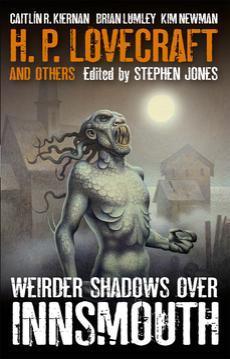
The lovely folk at Titan have given Bristol Book Blog two copies of their new Lovecraftian anthology to give away.Please mail BRSBKBLOG at GMAIL dot COM with a, no more than 50 words, mail with the Subject Line - "I need a copy of Weirder shadows over Innsmouth" and telling us in the body of the mail why you need a copy. The two most entertaining entries will win a copy of the book (if you make us laugh or scream in terror whilst simultaneously losing our minds, that will automatically put you on the shortlist).
Respected horror anthologist Stephen Jones edits this collection of 17 stories inspired by the 20th century’s master of horror, H.P. Lovecraft’s “The Shadow Over Innsmouth,” in which a young man goes to an isolated, desolate fishing village in Massachusetts, and finds that the entire village has interbred with strange creatures that live beneath the sea, and worship ancient gods.PRODUCT DETAILSISBN: 9781783291311Dimensions: 198 x 130mmPaperback: 384ppPublication date: 30 January 2015All authors:
Kim Newman , Caitlin R. Kiernan ,H.P. Lovecraft , Stephen Jones
Published on January 23, 2015 01:36
January 21, 2015
The Refossiling & A guest post by Ken Goldman
The Refossiling (including my story - "The body in the lake" is due out soon. We've seen the proofs and are awaiting a test copy back from the printer.
Here's the lovely cover
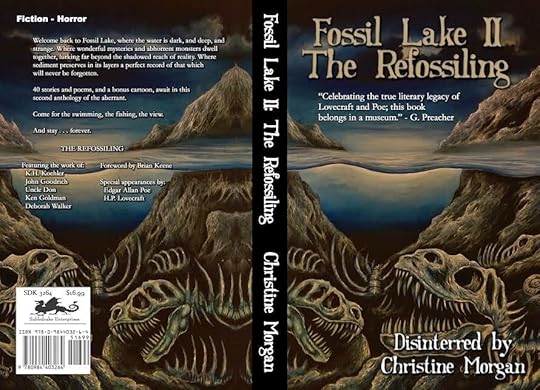
and the contents can be seen here: https://fossillake.wordpress.com/2014/11/21/table-of-contents-for-fossil-lake-ii-the-refossiling/
There's a whole bunch of talented folk involved (and me) and one of them, Ken Goldman, has dropped by to introduce himself.
Ken Goldman, former Philadelphia teacher of English and Film Studies, is an affiliate member of the Horror Writers Association. He has homes on the Main Line in Pennsylvania and at the Jersey shore. His stories have appeared in over 740 independent press publications in the U.S., Canada, the UK, and Australia with over thirty due for publication in 2015. Since 1993 Ken’s tales have received seven honorable mentions in The Year’s Best Fantasy & Horror. He has written five books : three anthologies of short stories, YOU HAD ME AT ARRGH!! (Sam's Dot Publishers), DONNY DOESN’T LIVE HERE ANYMORE (A/A Productions) and STAR-CROSSED (Vampires 2); and a novella, DESIREE, (Damnation Books). OF A FEATHER is his first novel.
***
BRSBKBLOG asked Ken to say a bit about writing and Horror and about his latest book -
***
I used to be an English teacher about a million years ago, and creative writing was an important focus of my course. There is a distinct difference between writing correctly and writing well. Creativity can be acquired, of course, but it’s damned difficult to teach. What can be your inspiration? EVERYTHING! And about getting down to it, my advice is always to be your own worst critic. Writing is rewriting, and it’s important to know when your writing needs revision. (The answer to that is always.)
I also taught courses on Horror and Science Fiction in Film & Literature. (Yeah, I know, jack of all trades, etc. etc.) What scares me won’t necessarily scare you. People during the 1930’s fainted at showings of FRANKENSTEIN and DRACULA. Today’s kids would probably see these films as somewhat laughable. Film is a different medium that the printed page; being visual it can shock much more readily. As a writer, you’re not going to have your reader scream as he turns the page, but you certainly can take him out of his comfort zone, maybe make him squirm a little. It’s subjective, but those things that go bump in the night can do the trick.
A little about OF A FEATHER :

Ken Goldman’s OF A FEATHER is available in paperback and Kindle at : http://www.amazon.com/Of-A-Feather-Ken-Goldman/dp/0957010362
More of Ken Goldman’s work is available here :
http://www.amazon.com/Kenneth-C.-Goldman/e/B004QVWTTE
Socrates Singer, at age six, while attending a Wellington County mall opening during an exotic bird show, is selected by an ancient Oglala Indian, Black Eagle, whose parrot, Jasmine, has chosen him from the crowd. Socrates is permitted to touch the sacred tribal mask of Wakinyan, thereby setting into motion an ability the boy will have in his later years--the power to control birds of every species. It is a power Socrates will discover has its uses, but it also has serious consequences if it is misused.
The horror (and the story’s tone) is not so dark that there isn’t room for some humor. Socrates Singer is keenly aware of his status among his peers and is equally aware of the absurdity that comes with his new found power. His sister, Dorie, has the kind of ‘potty mouth’ one would expect more from a longshoreman than a thirteen year old girl. But she also has a keen insight into what is happening to her brother, and her constant little-sister sarcasm doesn’t mask the love she feels for him.
There is a psychological element to the story also. (This is getting heavy, isn’t it?) The Great Circle (as explained at various points by the old Indian, Black Eagle) represents the two sides of human nature as seen in the two headed bird mask symbolizing Wikanyan’s dual spirit ... both the sparrow and the hawk. The circle theme shows up at various points in the story.
"They fly in circles. There’s something in that,” Socrates notices. He’s so right.
OF A FEATHER is published by Graeme Reynolds’ Horrific Tales Publications. For some other great novels check out ANGEL MANOR, LUCKYS’ GIRL, THE WHISPER TRILOGY, and the upcoming BOTTLED ABYSS.
Here's the lovely cover

and the contents can be seen here: https://fossillake.wordpress.com/2014/11/21/table-of-contents-for-fossil-lake-ii-the-refossiling/
There's a whole bunch of talented folk involved (and me) and one of them, Ken Goldman, has dropped by to introduce himself.
Ken Goldman, former Philadelphia teacher of English and Film Studies, is an affiliate member of the Horror Writers Association. He has homes on the Main Line in Pennsylvania and at the Jersey shore. His stories have appeared in over 740 independent press publications in the U.S., Canada, the UK, and Australia with over thirty due for publication in 2015. Since 1993 Ken’s tales have received seven honorable mentions in The Year’s Best Fantasy & Horror. He has written five books : three anthologies of short stories, YOU HAD ME AT ARRGH!! (Sam's Dot Publishers), DONNY DOESN’T LIVE HERE ANYMORE (A/A Productions) and STAR-CROSSED (Vampires 2); and a novella, DESIREE, (Damnation Books). OF A FEATHER is his first novel.
***
BRSBKBLOG asked Ken to say a bit about writing and Horror and about his latest book -
***
I used to be an English teacher about a million years ago, and creative writing was an important focus of my course. There is a distinct difference between writing correctly and writing well. Creativity can be acquired, of course, but it’s damned difficult to teach. What can be your inspiration? EVERYTHING! And about getting down to it, my advice is always to be your own worst critic. Writing is rewriting, and it’s important to know when your writing needs revision. (The answer to that is always.)
I also taught courses on Horror and Science Fiction in Film & Literature. (Yeah, I know, jack of all trades, etc. etc.) What scares me won’t necessarily scare you. People during the 1930’s fainted at showings of FRANKENSTEIN and DRACULA. Today’s kids would probably see these films as somewhat laughable. Film is a different medium that the printed page; being visual it can shock much more readily. As a writer, you’re not going to have your reader scream as he turns the page, but you certainly can take him out of his comfort zone, maybe make him squirm a little. It’s subjective, but those things that go bump in the night can do the trick.
A little about OF A FEATHER :

Ken Goldman’s OF A FEATHER is available in paperback and Kindle at : http://www.amazon.com/Of-A-Feather-Ken-Goldman/dp/0957010362
More of Ken Goldman’s work is available here :
http://www.amazon.com/Kenneth-C.-Goldman/e/B004QVWTTE
Socrates Singer, at age six, while attending a Wellington County mall opening during an exotic bird show, is selected by an ancient Oglala Indian, Black Eagle, whose parrot, Jasmine, has chosen him from the crowd. Socrates is permitted to touch the sacred tribal mask of Wakinyan, thereby setting into motion an ability the boy will have in his later years--the power to control birds of every species. It is a power Socrates will discover has its uses, but it also has serious consequences if it is misused.
The horror (and the story’s tone) is not so dark that there isn’t room for some humor. Socrates Singer is keenly aware of his status among his peers and is equally aware of the absurdity that comes with his new found power. His sister, Dorie, has the kind of ‘potty mouth’ one would expect more from a longshoreman than a thirteen year old girl. But she also has a keen insight into what is happening to her brother, and her constant little-sister sarcasm doesn’t mask the love she feels for him.
There is a psychological element to the story also. (This is getting heavy, isn’t it?) The Great Circle (as explained at various points by the old Indian, Black Eagle) represents the two sides of human nature as seen in the two headed bird mask symbolizing Wikanyan’s dual spirit ... both the sparrow and the hawk. The circle theme shows up at various points in the story.
"They fly in circles. There’s something in that,” Socrates notices. He’s so right.
OF A FEATHER is published by Graeme Reynolds’ Horrific Tales Publications. For some other great novels check out ANGEL MANOR, LUCKYS’ GIRL, THE WHISPER TRILOGY, and the upcoming BOTTLED ABYSS.
Published on January 21, 2015 06:55
January 19, 2015
The accidental adventures of Sherlock Holmes

When Sherlock Holmes unknowingly murders his own client, the game is on to track down the criminal mastermind who did it - Holmes himself!
Join the world-famous detective as he unravels the strangest case of his career with Tobacco Tea Theatre Company
It's a crying shame that this is only on for 2 nights at the Bierkeller Theatre (but there's tickets for tonight so get yourself down there) because it really is rather good.
As a veteran of the Edinburgh Fringe I've been to see a play or two over the years and know from bitter experience that plays are of variable quality.
However when they work, when actors, script and direction find that magical alchemy, they are an almost unparalleled entertainment.
Happily Christopher Cutting (Writer/Director) has produced such alchemy. It is a comic, and knowing, exploration of the Sherlock Holmes ouvre and the laughs kept building over the 50 minute running time. No flab in this script and a slew of great one liners, some causing very deep guffaws in the audience.
I was also impressed by the intelligence of the script as well as it's comedic value, a musing on writing and a sly meta-wink at detective fiction, plays and Holmes himself made for a very satisfying experience.
Holmes was ably played by Jasmine Atkins-Smart whose pockets always seemed to have just one more pipe.
Watson, who also acted as the narrator was played by Thomas David Parker with muttonchops, mousetache and a fine comedic performance. Joshua Phillips shone as Moriarty as well as a memorable Mrs Hudson on drugs.
If you get the chance to go then please do, you won't be disappointed.
Published on January 19, 2015 05:33
January 16, 2015
Guest post from Sarah Ash
Today's guest post comes from fantasy author Sarah Ash
 Sarah Ash read music at New Hall, Cambridge for four years, studying with Robin Holloway and John Rutter for her finals. Her interests in music and drama led her into teaching where she has been lucky to work with many dynamic and talented young people.Although she had co-written several musicals for young performers, she decided in 1991 to concentrate her creative energies on her other passion: writing. Having been shortlisted in the final ten of the Guardian Children’s Fiction award for a – still unpublished – fantasy The Mabinogion Mice, her breakthrough came in 1992 with the publication in Interzone of the short story ‘Moth Music’.
Sarah Ash read music at New Hall, Cambridge for four years, studying with Robin Holloway and John Rutter for her finals. Her interests in music and drama led her into teaching where she has been lucky to work with many dynamic and talented young people.Although she had co-written several musicals for young performers, she decided in 1991 to concentrate her creative energies on her other passion: writing. Having been shortlisted in the final ten of the Guardian Children’s Fiction award for a – still unpublished – fantasy The Mabinogion Mice, her breakthrough came in 1992 with the publication in Interzone of the short story ‘Moth Music’.
You can find Sarah on the web here: http://www.sarah-ash.com/
Sarah has popped into the Bristol Book Blog to talk about Historical Fantasy.
Historical Fantasy...or Alternate History? Sarah Ash
Is Historical Fantasy a cop-out for fantasy writers (no secondary world-building required, it’s all there in the history books already) ? Or is it a unique way to explore a historical period or a significant figure in ways that authors like Hilary Mantel or Bernard Cornwell can’t exploit as they have to ‘stick to the facts’? (Although, it’s often been argued that all fiction set in the past is fantasy to some extent as the genre involves an author imagining themselves inside the heads of ‘real’ people.)
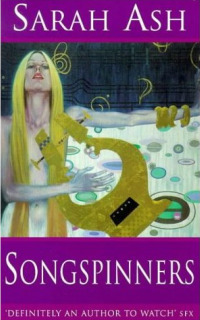
I’ve always loved reading historical fiction and still count Rosemary Sutcliff and Mary Renault among my favourite writers. Their feats of historical imagination in works like Sword at Sunset (Sutcliff) and The King Must Die and The Bull from the Sea (Renault) inhabit that misty middle ground between legend and historical fact; Sutcliff explores the life of a Romano-British Arthur and Renault tackles the story of Theseus and the Minotaur, basing it at Knossos on Crete. In the mid-twentieth century when those novels were first published, gritty realism was ‘in’, novels by Angry Young Men stole the literary headlines and plaudits and writing fantasy for adults was largely frowned on as being both irrelevant and escapist. So there was no magic in these historical novels as such, rather the presentation of a possible origin story around which legends soon arose. How fashions have changed in half a century!
I learned – the hard way – that writing kosher historical fiction – the kind where you imagine what happened in the gaps between the factual information (letters, documents, etc.) – can go horribly wrong when ‘new’ information is unearthed after you finish the novel. Nowadays the internet offers such a wealth of information at the fingertips that those faraway days of trekking from library to library seem like a memory from the Dark Ages. It took so long to ferret out obscure facts and track down documents...

The first historical novel I wrote was based on real people but I could find very little in the way of concrete facts on which to hang the story. In those pre-internet days I had to go to the British Library to do research and I spent wonderful times in the old domed Reading Room toiling through obscure and ancient volumes in French. But, even though my French improved, I gleaned very little in the way of new material, so I set to and wrote the novel anyway, making up all the missing bits (as you do).
While the novel was ‘doing the rounds’, we happened to be in Brittany on a wet holiday and left the camp-site to go into town to find distractions for our two bored little boy. What should I find, but a brand-new book on my chosen subject with archive material that had recently come to light. And, you guessed it, the bits I had made up were way off the mark. Charlotte-Anne de Chanlecy, my heroine, had never been in Paris in her teenage years, her first husband had not been an old lecher at all but a dashing war hero who had died of his wounds etc. etc. No quick rewrites were ever going to fix those problems! So I mourned my historical novel and put it aside, consoling myself with the fact that maybe one day I could return to it, maybe describing it as alternate history…

My inspiration, Alexandre Dumas, was far from accurate in his historical novels. ‘The Three Musketeers’ takes place between 1625 and 1628, culminating in the Siege of La Rochelle. Dumas artfully explains that he has verified the facts in the novel by discovering the obscure ‘Memoirs of the Comte de la Fère’ (sending countless readers to the Bibliothèque Royale on a fruitless search). In reality, he had used the fictional ‘Memoirs of d’Artagnan’ written by an ex-soldier who may or may not have met the man himself. These pseudo-memoirs are much more accurate in their dates, starting around 1640 at the end of Louis XIII’s reign, when – it is conjectured by some scholars – the real Charles d’Artagnan may have begun his military career. So the ‘real’ d’Artagnan could not have been at the Siege of La Rochelle; he was still a boy in Gascony.
Nowadays, we demand a far greater degree of factual correctness in our historical novels and were Dumas writing today, his novels might well be described as Alternate Histories. And if he’d given the musketeers winged horses and the beautiful villainess Milady had been a vampire (Dumas’s descriptions come close!) the novels would have become Historical Fantasies… (see Pierre Pevel below).
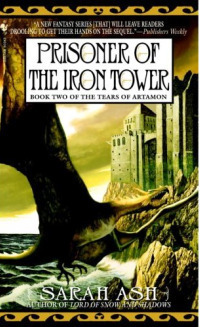
However, I don’t want to give the impression that creating historical fantasy is just an excuse for dressing up in cod-period clothes and re-creating on the page some scenes you saw in some old movie or TV series – there’s no place for lazy writing here! On the other hand, the best historical fiction wears its research lightly, so there’s no need to regurgitate all your notes; if readers want facts, they’ll go to the non-fiction shelf. So, let’s say that your story’s set in fifteenth century Wales during the Wars of the Roses (what might have happened if Henry Tudor had drowned on his return voyage to challenge Richard III?). And talking of Richard III, the recent DNA revelations (blue eyes, fair hair) when we’re most used to imagining him with dark hair and eyes (Lawrence Olivier film version?) illustrate what a minefield the whole issue of historical accuracy can be.
My solution? To set my fiction in an invented world which, although similar to our own in some ways, is utterly different in every other respect. Even though ‘The Tears of Artamon’ series is set in a nascent age of reason, the scientific advances are described as alchymy, and intruders from heaven and hell, in the form of Winged Guardians and Drakhaouls, still wage their eternal war in the world of mortals. But no sooner had I begun to write ‘Artamon’ than I realized that, in creating my own history, I would have to establish my own timeline and stick to it rigidly. I had to establish firm dates to ensure that momentous events, like the destruction of the Francian fleet by Prince Karl the Navigator, took place at a fixed point in time (eighteen years before Gavril Nagarian becomes Drakhaon of Azhkendir, to be precise). I was kidding myself when I thought I could escape the rigour of working within historical facts!
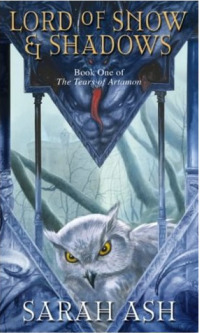
So by all means, immerse yourself in contemporary memoirs, diaries, documents, maps – it’s your passion for that historical period that’s started the whole project, after all – have your fun, but then internalize it all and only bring out those fascinating nuggets of research when they’re genuinely relevant to the story you want to tell.
A few personal recommendations from this very wide-ranging genre:
The Cardinal’s Blades trilogy by Pierre Pevel (translated by Tom Clegg) GollanczPevel presents us with a seventeenth century France in which magic and dragons exist. This is a truly swashbuckling story which wittily evokes the fast-moving dialogue of Alexandre Dumas whilst depicting the ‘other’ side, Cardinal Richelieu’s blades. (Look out for cameo roles of Dumas’s Musketeers!)
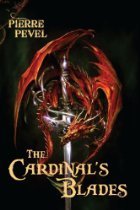
The Court of the Midnight King: a Dream of Richard III by Freda Warrington, now available as an e-book, is a very ‘different’ and imaginative take on the life and times of Richard III by a gifted author whose writing is steeped in folklore and legend.
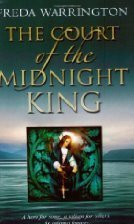
The Porcelain Dove by Delia Sherman takes us to France again, this time in the eighteenth century, and to a village far from bustling Paris where local superstitions and customs affect a well-born family and their servants in unexpected ways. Delia Sherman evokes the period with exquisite attention to the little details of everyday living that bring her characters vividly to life.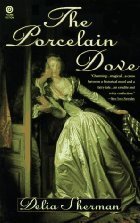
Jo Walton writing at Tor.com in 2009 offers her own fascinating perspective on the topic: http://www.tor.com/blogs/2009/07/what-is-historical-fantasy-anyway
Part of this article originally appeared in Spectre Pulse in 2008
***
Many thanks to Sarah for this fascinating look at Historical Fiction. Please do go and check her books out!
 Sarah Ash read music at New Hall, Cambridge for four years, studying with Robin Holloway and John Rutter for her finals. Her interests in music and drama led her into teaching where she has been lucky to work with many dynamic and talented young people.Although she had co-written several musicals for young performers, she decided in 1991 to concentrate her creative energies on her other passion: writing. Having been shortlisted in the final ten of the Guardian Children’s Fiction award for a – still unpublished – fantasy The Mabinogion Mice, her breakthrough came in 1992 with the publication in Interzone of the short story ‘Moth Music’.
Sarah Ash read music at New Hall, Cambridge for four years, studying with Robin Holloway and John Rutter for her finals. Her interests in music and drama led her into teaching where she has been lucky to work with many dynamic and talented young people.Although she had co-written several musicals for young performers, she decided in 1991 to concentrate her creative energies on her other passion: writing. Having been shortlisted in the final ten of the Guardian Children’s Fiction award for a – still unpublished – fantasy The Mabinogion Mice, her breakthrough came in 1992 with the publication in Interzone of the short story ‘Moth Music’. You can find Sarah on the web here: http://www.sarah-ash.com/
Sarah has popped into the Bristol Book Blog to talk about Historical Fantasy.
Historical Fantasy...or Alternate History? Sarah Ash
Is Historical Fantasy a cop-out for fantasy writers (no secondary world-building required, it’s all there in the history books already) ? Or is it a unique way to explore a historical period or a significant figure in ways that authors like Hilary Mantel or Bernard Cornwell can’t exploit as they have to ‘stick to the facts’? (Although, it’s often been argued that all fiction set in the past is fantasy to some extent as the genre involves an author imagining themselves inside the heads of ‘real’ people.)

I’ve always loved reading historical fiction and still count Rosemary Sutcliff and Mary Renault among my favourite writers. Their feats of historical imagination in works like Sword at Sunset (Sutcliff) and The King Must Die and The Bull from the Sea (Renault) inhabit that misty middle ground between legend and historical fact; Sutcliff explores the life of a Romano-British Arthur and Renault tackles the story of Theseus and the Minotaur, basing it at Knossos on Crete. In the mid-twentieth century when those novels were first published, gritty realism was ‘in’, novels by Angry Young Men stole the literary headlines and plaudits and writing fantasy for adults was largely frowned on as being both irrelevant and escapist. So there was no magic in these historical novels as such, rather the presentation of a possible origin story around which legends soon arose. How fashions have changed in half a century!
I learned – the hard way – that writing kosher historical fiction – the kind where you imagine what happened in the gaps between the factual information (letters, documents, etc.) – can go horribly wrong when ‘new’ information is unearthed after you finish the novel. Nowadays the internet offers such a wealth of information at the fingertips that those faraway days of trekking from library to library seem like a memory from the Dark Ages. It took so long to ferret out obscure facts and track down documents...

The first historical novel I wrote was based on real people but I could find very little in the way of concrete facts on which to hang the story. In those pre-internet days I had to go to the British Library to do research and I spent wonderful times in the old domed Reading Room toiling through obscure and ancient volumes in French. But, even though my French improved, I gleaned very little in the way of new material, so I set to and wrote the novel anyway, making up all the missing bits (as you do).
While the novel was ‘doing the rounds’, we happened to be in Brittany on a wet holiday and left the camp-site to go into town to find distractions for our two bored little boy. What should I find, but a brand-new book on my chosen subject with archive material that had recently come to light. And, you guessed it, the bits I had made up were way off the mark. Charlotte-Anne de Chanlecy, my heroine, had never been in Paris in her teenage years, her first husband had not been an old lecher at all but a dashing war hero who had died of his wounds etc. etc. No quick rewrites were ever going to fix those problems! So I mourned my historical novel and put it aside, consoling myself with the fact that maybe one day I could return to it, maybe describing it as alternate history…

My inspiration, Alexandre Dumas, was far from accurate in his historical novels. ‘The Three Musketeers’ takes place between 1625 and 1628, culminating in the Siege of La Rochelle. Dumas artfully explains that he has verified the facts in the novel by discovering the obscure ‘Memoirs of the Comte de la Fère’ (sending countless readers to the Bibliothèque Royale on a fruitless search). In reality, he had used the fictional ‘Memoirs of d’Artagnan’ written by an ex-soldier who may or may not have met the man himself. These pseudo-memoirs are much more accurate in their dates, starting around 1640 at the end of Louis XIII’s reign, when – it is conjectured by some scholars – the real Charles d’Artagnan may have begun his military career. So the ‘real’ d’Artagnan could not have been at the Siege of La Rochelle; he was still a boy in Gascony.
Nowadays, we demand a far greater degree of factual correctness in our historical novels and were Dumas writing today, his novels might well be described as Alternate Histories. And if he’d given the musketeers winged horses and the beautiful villainess Milady had been a vampire (Dumas’s descriptions come close!) the novels would have become Historical Fantasies… (see Pierre Pevel below).

However, I don’t want to give the impression that creating historical fantasy is just an excuse for dressing up in cod-period clothes and re-creating on the page some scenes you saw in some old movie or TV series – there’s no place for lazy writing here! On the other hand, the best historical fiction wears its research lightly, so there’s no need to regurgitate all your notes; if readers want facts, they’ll go to the non-fiction shelf. So, let’s say that your story’s set in fifteenth century Wales during the Wars of the Roses (what might have happened if Henry Tudor had drowned on his return voyage to challenge Richard III?). And talking of Richard III, the recent DNA revelations (blue eyes, fair hair) when we’re most used to imagining him with dark hair and eyes (Lawrence Olivier film version?) illustrate what a minefield the whole issue of historical accuracy can be.
My solution? To set my fiction in an invented world which, although similar to our own in some ways, is utterly different in every other respect. Even though ‘The Tears of Artamon’ series is set in a nascent age of reason, the scientific advances are described as alchymy, and intruders from heaven and hell, in the form of Winged Guardians and Drakhaouls, still wage their eternal war in the world of mortals. But no sooner had I begun to write ‘Artamon’ than I realized that, in creating my own history, I would have to establish my own timeline and stick to it rigidly. I had to establish firm dates to ensure that momentous events, like the destruction of the Francian fleet by Prince Karl the Navigator, took place at a fixed point in time (eighteen years before Gavril Nagarian becomes Drakhaon of Azhkendir, to be precise). I was kidding myself when I thought I could escape the rigour of working within historical facts!

So by all means, immerse yourself in contemporary memoirs, diaries, documents, maps – it’s your passion for that historical period that’s started the whole project, after all – have your fun, but then internalize it all and only bring out those fascinating nuggets of research when they’re genuinely relevant to the story you want to tell.
A few personal recommendations from this very wide-ranging genre:
The Cardinal’s Blades trilogy by Pierre Pevel (translated by Tom Clegg) GollanczPevel presents us with a seventeenth century France in which magic and dragons exist. This is a truly swashbuckling story which wittily evokes the fast-moving dialogue of Alexandre Dumas whilst depicting the ‘other’ side, Cardinal Richelieu’s blades. (Look out for cameo roles of Dumas’s Musketeers!)

The Court of the Midnight King: a Dream of Richard III by Freda Warrington, now available as an e-book, is a very ‘different’ and imaginative take on the life and times of Richard III by a gifted author whose writing is steeped in folklore and legend.

The Porcelain Dove by Delia Sherman takes us to France again, this time in the eighteenth century, and to a village far from bustling Paris where local superstitions and customs affect a well-born family and their servants in unexpected ways. Delia Sherman evokes the period with exquisite attention to the little details of everyday living that bring her characters vividly to life.

Jo Walton writing at Tor.com in 2009 offers her own fascinating perspective on the topic: http://www.tor.com/blogs/2009/07/what-is-historical-fantasy-anyway
Part of this article originally appeared in Spectre Pulse in 2008
***
Many thanks to Sarah for this fascinating look at Historical Fiction. Please do go and check her books out!
Published on January 16, 2015 02:55
January 13, 2015
Short reviews from 2015 reading so far
Andre the giant by Box Brown

Average
Andre the giant was a wrestler and Fezzig in The Princess Bride and this is Box Brown’s biography. Although it does have Andre’s life sequentially (light on anything pre-wrestling) it felt very episodic and didn’t really have any binding narrative. I was left at the end knowing very little more than I already knew from being semi-aware of him as a wrestler and actor in a film I quite like.
Overall – Just the facts, nothing to bring it all alive
Black Paths by David B

Good
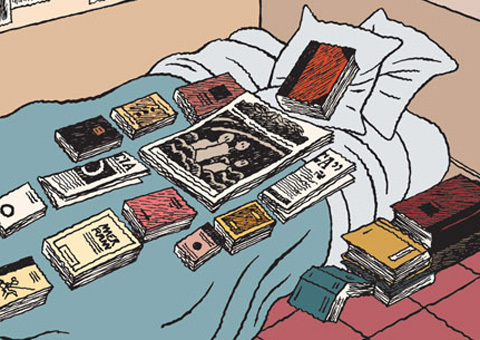
At the end of the first world war a ‘pirate’ named Gabriele D’Annunzio captures the port of Fiume and declares it an free republic with him as head of state. Meanwhile some former Italian soldiers perform a heist of the spoils that Sicilians have previously stolen, including artwork and a beautiful French singer, with whom one of the soldiers falls madly in love. The art and story capture the mood of the time and is full of revolutionary fervour but a little difficult to follow at times. It’s a little muddled and more concerned with painting a big picture than telling a story but the art is, as usual for David B, well executed, if a little busy at times.
Overall – Nice satire with great art
Understanding comics by Scott McCloud
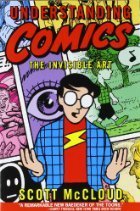
Brilliant
McCloud’s now classic exploration of the art of comics in a comic medium. It explores a definition of cimics (a little more than sequential art but not too much more), the history of comics which takes in things like the Bayeux tapestry, art, iconography, pictures, words, gutters, colour, time and well everything there is to understanding comics. This is a tour de force and pretty much required reading for comics aficionados. I learned a great deal and as the blurb on the back says I’ll “never look at comics the same way again.” I highly recommend this to those of you who read GN and those who want to but don’t know where to start and, well everyone else too. I’ll be re-reading this a number of times I expect, to absorb all the different lessons within.
Overall – Required reading for anyone interested in comics.
Red Handed by Matt Kindt
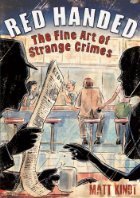
Average
A series of bizarre whodunnits, all investigated by the brilliant Detective Gould who singlehandedly brings the unresolved cases way down. The crimes are all odd, a woman steals chairs, an art thief cuts his haul into little pieces to sell, a woman steals street signs to put them on a warehouse wall to create a new novel etc. Gould eventually finds that al the crimes are related. The art and words are well executed but in the end it failed to move me, it wasn’t as clever as it thought it was and the resolution seemed a bit implausible.
Overall – Competent but not compelling
Discovering Scarfolk by Richard Littler
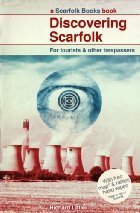
Brilliant
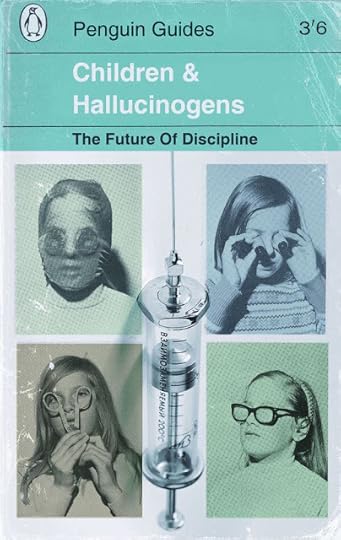
Scarfolk is a small town in Northern England that is stuck in 1979. The author was sent a package, herein called the archive, by one who escaped its clutches, but not without being changed. Richard Littler has been producing a cult blog for some time - http://scarfolk.blogspot.co.uk/ and this book explores the town of Scarfolk, its residents and bizarre religious practices via the archive. Full of period pictures and a creeping sense of doom arising from office equipment, and some very dubious puns. This is a delightful read that kept me entertained for a period of time where I would otherwise have been suffering the side effects of not taking my lobotomymed.
"Visit Scarfolk today. Our number one priority is keeping rabies at bay."
Take a look at the blog link, that’ll give you a good idea of what the book is like.
Overall – For more information please reread this review

Average
Andre the giant was a wrestler and Fezzig in The Princess Bride and this is Box Brown’s biography. Although it does have Andre’s life sequentially (light on anything pre-wrestling) it felt very episodic and didn’t really have any binding narrative. I was left at the end knowing very little more than I already knew from being semi-aware of him as a wrestler and actor in a film I quite like.
Overall – Just the facts, nothing to bring it all alive
Black Paths by David B

Good

At the end of the first world war a ‘pirate’ named Gabriele D’Annunzio captures the port of Fiume and declares it an free republic with him as head of state. Meanwhile some former Italian soldiers perform a heist of the spoils that Sicilians have previously stolen, including artwork and a beautiful French singer, with whom one of the soldiers falls madly in love. The art and story capture the mood of the time and is full of revolutionary fervour but a little difficult to follow at times. It’s a little muddled and more concerned with painting a big picture than telling a story but the art is, as usual for David B, well executed, if a little busy at times.
Overall – Nice satire with great art
Understanding comics by Scott McCloud

Brilliant
McCloud’s now classic exploration of the art of comics in a comic medium. It explores a definition of cimics (a little more than sequential art but not too much more), the history of comics which takes in things like the Bayeux tapestry, art, iconography, pictures, words, gutters, colour, time and well everything there is to understanding comics. This is a tour de force and pretty much required reading for comics aficionados. I learned a great deal and as the blurb on the back says I’ll “never look at comics the same way again.” I highly recommend this to those of you who read GN and those who want to but don’t know where to start and, well everyone else too. I’ll be re-reading this a number of times I expect, to absorb all the different lessons within.
Overall – Required reading for anyone interested in comics.
Red Handed by Matt Kindt

Average
A series of bizarre whodunnits, all investigated by the brilliant Detective Gould who singlehandedly brings the unresolved cases way down. The crimes are all odd, a woman steals chairs, an art thief cuts his haul into little pieces to sell, a woman steals street signs to put them on a warehouse wall to create a new novel etc. Gould eventually finds that al the crimes are related. The art and words are well executed but in the end it failed to move me, it wasn’t as clever as it thought it was and the resolution seemed a bit implausible.
Overall – Competent but not compelling
Discovering Scarfolk by Richard Littler

Brilliant

Scarfolk is a small town in Northern England that is stuck in 1979. The author was sent a package, herein called the archive, by one who escaped its clutches, but not without being changed. Richard Littler has been producing a cult blog for some time - http://scarfolk.blogspot.co.uk/ and this book explores the town of Scarfolk, its residents and bizarre religious practices via the archive. Full of period pictures and a creeping sense of doom arising from office equipment, and some very dubious puns. This is a delightful read that kept me entertained for a period of time where I would otherwise have been suffering the side effects of not taking my lobotomymed.
"Visit Scarfolk today. Our number one priority is keeping rabies at bay."
Take a look at the blog link, that’ll give you a good idea of what the book is like.
Overall – For more information please reread this review
Published on January 13, 2015 06:56
January 6, 2015
Some short reviews of November & December reading
Do No Harm by Henry Marsh
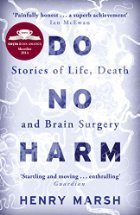
Brilliant
Henry Marsh is one of Britain’s top neurosurgeons and in this memoir he reflects upon his career, on the highs and lows. Especially the lows. This is a fascinating insight into what can go wrong with the brain, that require surgery. The heart breaking decisions surgeons need to make. The state of British and Ukrainian medicine (Marsh travels a lot to Ukraine) and what top surgeons think of the NHS (it’d be great if governments stopped interfering on ideological grounds). Marsh’s prose is matter of fact and unflinchingly honest, regrets are laid bare and he admits to mistakes that “ruin” people or even kill them. This has been put forward for a Costa prize and I’m not surprised. A gripping read throughout.
Overall - If you’re the sort of person who is interested in the workings of biology, medicine or a fan of medical drama this is the book for you.
Broken Monsters by Lauren Beukes
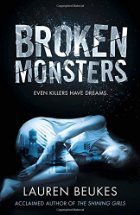
Good
Combining crime and urban fantasy Beukes writes a novel I enjoyed but it was just a little off the mark to gain a Brilliant rating. A mutilated body of the top half of a boy glued to the bottom half of a deer starts a hunt for a new serial killer on the block in Detroit. Beukes does a great job of creating the cop investigating, Gabi Versado, and her daughter, who becomes integral, and the killer. Detroit’s art scene is vividly brought to life and the plot bubbled away nicely. Beukes was spot on with social media in the novel, which was very refreshing, so many modern novels try to ignore mobile phones, the internet and social media, but Beukes interweaves it beautifully. So what was off the mark? The supernatural element, it just felt superfluous, a garnish rather than an integral ingredient. Still that is a relatively minor niggle and I do recommend this book. I am also slightly disappointed that Beukes has started writing books set exclusively in America, I liked that her first two were set in her native South Africa.
Overall – Crime? Horror? urban fantasy? Doesn’t matter what genre you put it in, give it a go
Travels in a thin country by Sara Wheeler
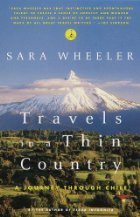 Average
Average
Sara, as a young woman, travels to Chile and determines to travel from the very top to the very bottom (in Antartica) and write about her experiences. Whilst this does explore the country it does so in very brief snapshots in each place and there is no overall narrative to bind it together. I read it on holiday, naturally, and can remember very little of it now, a matter of a few weeks later.
Overall - Not very evocative.
Distant Star by Roberto Bolano
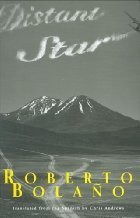
Average
Novella about poets during the Pinochet era. Bolano obviously took sly digs at actual poets and the overall tone is interesting but in a novella it’s a very odd choice to abandon the plot half way through for an extensive aside. I didn’t really enjoy this one, it failed to grip me and the last third fails at being hard boiled. This is my second Bolano and the second I’ve not really “got”. It came recommended and now I’m wondering if Bolano is for me – perhaps I’m just not trying him at his best?
Overall - This struck me as a pretentious book.
Navidad & Matanza by Carlos Labbe
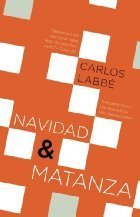
Good
The narrator(s), quite unreliable, is participating in a writing experiment/game with six other particpants, all named after days of the week. Each writes part of the story that the others must complete, if one fails they disappear, an obvious allusion to the disappearances during the Pinochet era. Our narrator is obsessed with a family whose the son and daughter disappear in Navidad near the twin village of Matanza. This is a short but chewy novel/novella which twists and turns through a complex structure and plot. I was left a little mystified at the end, obviously missing some of its allusions and Chileanisms. It is a very interesting, but confusing, read.
Overall – Not an easy book, but worthwhile reading
Ways of going home by Alejandro Zambra
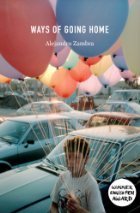
Good
Our narrator reflects on his childhood growing up in 1980’s Chile as his parents and their friends try to cope with Pinochet’s regime. On the night of the Santiago earthquake, a mysterious girl, called Claudia, appears and his life is changed forever. This is another Chilean novella about the Pinochet era that I read whilst travelling in Chile and the one that I remember best. It’s a story about finding our way home (as per the title) both physically and emotionally and obviously an allusion of how the country can return ‘home’ after the dictatorship.
Overall – Small book, big themes, interesting reading, recommended.
Pablo Neruda by Dominic Moran
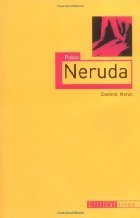
Good
A biography of that quintessential Chilean poet Pablo Neruda, Nobel prize winner, diplomat, philanderer. Moran’s biography concentrates on what the poetry says about the man going back and forth between the works and what was happening in the world, in Chile and in Neruda’s life. A controversial figure, unable to criticise Stalinist Russia because of his deeply held belief in Communism. Fleeing from Franco’s Spain, but then spending great effort to get others out once he was safe. Horrible to his wives, the third of whom was utterly devoted to him. Neruda’s character is complex and fascinating. Moran also gives us an oversight of some of the more famous poems and poetry collections. It was very interesting to tour Neruda’s hoses in Santiago and Valparaiso after reading this book.
Overall – A riveting, if not very flattering, portrait of a complex character, one you cannot help but dislike.
On Liberty by Shami Chakrabarti
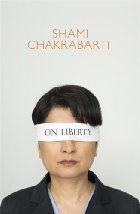
Good
Shami Chakrabati gave up a promising career working as a lawyer for the home office to join Liberty, a cash-strapped charity fighting on behalf of the oppressed for human rights. Here she tells her story and why liberty (the concept) and Liberty (the organisation) are important. Human Rights in this country (the UK) have come under attack lately as people leap on board the UKIP bandwagon with its mistaken belief that some people do not deserve any rights, and that rights have been assigned and enforced incorrectly by faceless bureaucrats in Europe. What they don’t admit to is that Human Rights were enshrined in law after the holocaust, written mostly by British lawyers. Chakrabarti lays out the facts about the act, quotes it extensively, debunks the counter-factual claims of the Right (including our delusional Conservative party, as well as the nutters in UKIP) and explains with patience, passion and intelligence why human rights are important.
Overall – People either side of the human rights debate should read this book.
Why are we the good guys? by David Cromwell
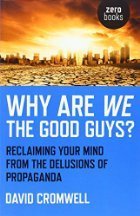 Good
Good
David Cromwell of Media Lens - http://www.medialens.org/ challenges the assumption that the West is a force for good. To quote the back - <i> One of the unspoken assumptions of the Western world is that we are great defenders of human rights, a free press and the benefits of market economics. … the prevailing view is that the West is essentially a force for good in the wider world. Why Are We The Good Guys? is a provocative challenge of this false ideology.</i>
Interweaved with Cromwell’s incisive analysis of the modern media is a memoir of how he came to be an iconoclast, growing up in one of the very few communist families in his home town. I like iconoclasts, I like to have my assumptions and cosy opinions challenged, I think this is healthy, if you have an opinion, understanding why you have that opinion and being able to defend it is a useful skill. Cromwell makes many good points but I feel goes too far the other way, we are neither universally good nor universally bad. Perhaps it is his debating technique – to take a diametrically opposite view – but some of what he said eroded his message.
Overall – Thought-provoking polemic
Bad book club by Robin Ince
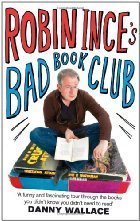
Good
Robin Ince is a UK comedian that travels the country doing gigs, on his travels he visits second hand bookshops looking for reading material. Once bitten by the “this book is so bad it’s good” bug he goes on search for the hidden gems of bad celebrity biographies, awful animal horror stories (like [The crabs]) and romances with heaving bosoms, bizarre self-help books and many more. Ince is best when he rants about books written by newspaper columnists or celebrity culture and the chapter on sex has some very bizarre material. However it’s not a book to read all in one go, as the humour wears a little thin by the end. I also felt it was perhaps a little too long, but maybe it was just that the novelty wore off a few chapters before the end. Saying that though Ince is obviously passionate about writing and I really enjoyed most of the book.
Overall – A celebration of bad writing and bad book ideas.
The best American non-required reading edited by Daniel Handler (aka Lemony Snickett)
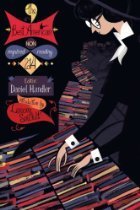
Average
Every year high school students through the auspices of 826 Valencia (and the other 826 locations USA wide) read and choose fiction and non-fiction to be included in an anthology. This was set up by [[Dave Eggers]] and this year, for the first time, edited by Daniel Handler. This should be a very mixed bag right? There are non-fiction pieces, fiction, even extracts from Graphic Novels. But I found it all to be very similar, and, dare I say, a bit bland. So much so that I couldn’t reach the end (I have about three stories left to write and two poems). I started by trying to read in one, went to reading in between other books and it’s now on the TGRO (To Get Rid Of pile).
Overall – What should be eclectic and interesting is somehow similar and bland
How not to write a novel by Sandra Newman
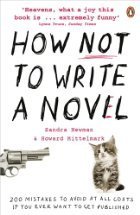
Good
Turning the usual writing advice on its head, and providing plenty of examples of deliciously bad writing, the authors of this little help novel tell you how to write an unpublishable novel. How to write bad characters, bad plot, bad dialogue, bad settings, bad pacing, the works. This is entertaining and educational and I read it in a few hours.
Overall – Lots of fun writing guide
Sunbathing Naked by Guy Kennaway
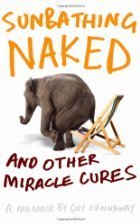
Good
Guy Kennaway has psoriasis, and this is his skin’s memoir. Kennaway rushes through his biography up until he gets the dreaded red patches, then gives us a bit of context with a little bit of history of psoriasis, and the fact that “lepers” in the Bible should actually be Psoraitics, not sufferers of Hansard’s Disease as commonly assumed & provides the etymological evidence for this. There is a call back to this later as he discusses the Jesus cures a Leper parts of the Bible. He blends in the biographies of other sufferers (which he admits are conglomerates of people he’s met, rather than actual people) and an extended article about the wonders of sunbathing naked in the Dead Sea skin resort in Israel during one of its occasional wars with Palestine. Then, when he leaves Israel in remission, the book takes a bizarre turn as Kennaway becomes a sex addict, being free from the crippling self-hate he has when covered in psoriatic lesions. This bit of the book was both sensational and also a little coy – he discusses in detail his treatment in rehab, but says nothing about how this affected his family, who I assume he is still with as he thanks them in the acknowledgements. Apart from this odd bit though this is a good book to get an idea of what psoriasis (and other skin disease) sufferers go through on a daily basis, not only physically but mentally too.
Overall – Interesting memoir about a struggle with a disease that affects self-esteem
The brothers Cabal by Jonathan L Howard
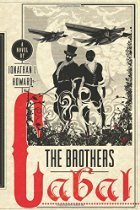
Brilliant
Hmmm how to review this without spoilers of the previous novels? By not mentioning the plot (which is great btw and the bit where the wotsit and the thingy were introduced was amazing) but just by saying – it’s like the previous books, but better. Has some characters you’ll know, and some you won’t. Has acts of derring do and wicked plots and perfidious practices. And there are brothers, they are named Cabal and you may or may not have met them both in earlier books. There are monsters from beyond the sane angles of reality of course and dark gloomy castles, and it may not be giving too much away to state that there is a train, but not that train, and there may also be sarcasm and necromancy.
Overall - This really is a great series and if you haven’t spent time with Johannes Cabal then you should remedy that immediately.

Brilliant
Henry Marsh is one of Britain’s top neurosurgeons and in this memoir he reflects upon his career, on the highs and lows. Especially the lows. This is a fascinating insight into what can go wrong with the brain, that require surgery. The heart breaking decisions surgeons need to make. The state of British and Ukrainian medicine (Marsh travels a lot to Ukraine) and what top surgeons think of the NHS (it’d be great if governments stopped interfering on ideological grounds). Marsh’s prose is matter of fact and unflinchingly honest, regrets are laid bare and he admits to mistakes that “ruin” people or even kill them. This has been put forward for a Costa prize and I’m not surprised. A gripping read throughout.
Overall - If you’re the sort of person who is interested in the workings of biology, medicine or a fan of medical drama this is the book for you.
Broken Monsters by Lauren Beukes

Good
Combining crime and urban fantasy Beukes writes a novel I enjoyed but it was just a little off the mark to gain a Brilliant rating. A mutilated body of the top half of a boy glued to the bottom half of a deer starts a hunt for a new serial killer on the block in Detroit. Beukes does a great job of creating the cop investigating, Gabi Versado, and her daughter, who becomes integral, and the killer. Detroit’s art scene is vividly brought to life and the plot bubbled away nicely. Beukes was spot on with social media in the novel, which was very refreshing, so many modern novels try to ignore mobile phones, the internet and social media, but Beukes interweaves it beautifully. So what was off the mark? The supernatural element, it just felt superfluous, a garnish rather than an integral ingredient. Still that is a relatively minor niggle and I do recommend this book. I am also slightly disappointed that Beukes has started writing books set exclusively in America, I liked that her first two were set in her native South Africa.
Overall – Crime? Horror? urban fantasy? Doesn’t matter what genre you put it in, give it a go
Travels in a thin country by Sara Wheeler
 Average
AverageSara, as a young woman, travels to Chile and determines to travel from the very top to the very bottom (in Antartica) and write about her experiences. Whilst this does explore the country it does so in very brief snapshots in each place and there is no overall narrative to bind it together. I read it on holiday, naturally, and can remember very little of it now, a matter of a few weeks later.
Overall - Not very evocative.
Distant Star by Roberto Bolano

Average
Novella about poets during the Pinochet era. Bolano obviously took sly digs at actual poets and the overall tone is interesting but in a novella it’s a very odd choice to abandon the plot half way through for an extensive aside. I didn’t really enjoy this one, it failed to grip me and the last third fails at being hard boiled. This is my second Bolano and the second I’ve not really “got”. It came recommended and now I’m wondering if Bolano is for me – perhaps I’m just not trying him at his best?
Overall - This struck me as a pretentious book.
Navidad & Matanza by Carlos Labbe

Good
The narrator(s), quite unreliable, is participating in a writing experiment/game with six other particpants, all named after days of the week. Each writes part of the story that the others must complete, if one fails they disappear, an obvious allusion to the disappearances during the Pinochet era. Our narrator is obsessed with a family whose the son and daughter disappear in Navidad near the twin village of Matanza. This is a short but chewy novel/novella which twists and turns through a complex structure and plot. I was left a little mystified at the end, obviously missing some of its allusions and Chileanisms. It is a very interesting, but confusing, read.
Overall – Not an easy book, but worthwhile reading
Ways of going home by Alejandro Zambra

Good
Our narrator reflects on his childhood growing up in 1980’s Chile as his parents and their friends try to cope with Pinochet’s regime. On the night of the Santiago earthquake, a mysterious girl, called Claudia, appears and his life is changed forever. This is another Chilean novella about the Pinochet era that I read whilst travelling in Chile and the one that I remember best. It’s a story about finding our way home (as per the title) both physically and emotionally and obviously an allusion of how the country can return ‘home’ after the dictatorship.
Overall – Small book, big themes, interesting reading, recommended.
Pablo Neruda by Dominic Moran

Good
A biography of that quintessential Chilean poet Pablo Neruda, Nobel prize winner, diplomat, philanderer. Moran’s biography concentrates on what the poetry says about the man going back and forth between the works and what was happening in the world, in Chile and in Neruda’s life. A controversial figure, unable to criticise Stalinist Russia because of his deeply held belief in Communism. Fleeing from Franco’s Spain, but then spending great effort to get others out once he was safe. Horrible to his wives, the third of whom was utterly devoted to him. Neruda’s character is complex and fascinating. Moran also gives us an oversight of some of the more famous poems and poetry collections. It was very interesting to tour Neruda’s hoses in Santiago and Valparaiso after reading this book.
Overall – A riveting, if not very flattering, portrait of a complex character, one you cannot help but dislike.
On Liberty by Shami Chakrabarti

Good
Shami Chakrabati gave up a promising career working as a lawyer for the home office to join Liberty, a cash-strapped charity fighting on behalf of the oppressed for human rights. Here she tells her story and why liberty (the concept) and Liberty (the organisation) are important. Human Rights in this country (the UK) have come under attack lately as people leap on board the UKIP bandwagon with its mistaken belief that some people do not deserve any rights, and that rights have been assigned and enforced incorrectly by faceless bureaucrats in Europe. What they don’t admit to is that Human Rights were enshrined in law after the holocaust, written mostly by British lawyers. Chakrabarti lays out the facts about the act, quotes it extensively, debunks the counter-factual claims of the Right (including our delusional Conservative party, as well as the nutters in UKIP) and explains with patience, passion and intelligence why human rights are important.
Overall – People either side of the human rights debate should read this book.
Why are we the good guys? by David Cromwell
 Good
GoodDavid Cromwell of Media Lens - http://www.medialens.org/ challenges the assumption that the West is a force for good. To quote the back - <i> One of the unspoken assumptions of the Western world is that we are great defenders of human rights, a free press and the benefits of market economics. … the prevailing view is that the West is essentially a force for good in the wider world. Why Are We The Good Guys? is a provocative challenge of this false ideology.</i>
Interweaved with Cromwell’s incisive analysis of the modern media is a memoir of how he came to be an iconoclast, growing up in one of the very few communist families in his home town. I like iconoclasts, I like to have my assumptions and cosy opinions challenged, I think this is healthy, if you have an opinion, understanding why you have that opinion and being able to defend it is a useful skill. Cromwell makes many good points but I feel goes too far the other way, we are neither universally good nor universally bad. Perhaps it is his debating technique – to take a diametrically opposite view – but some of what he said eroded his message.
Overall – Thought-provoking polemic
Bad book club by Robin Ince

Good
Robin Ince is a UK comedian that travels the country doing gigs, on his travels he visits second hand bookshops looking for reading material. Once bitten by the “this book is so bad it’s good” bug he goes on search for the hidden gems of bad celebrity biographies, awful animal horror stories (like [The crabs]) and romances with heaving bosoms, bizarre self-help books and many more. Ince is best when he rants about books written by newspaper columnists or celebrity culture and the chapter on sex has some very bizarre material. However it’s not a book to read all in one go, as the humour wears a little thin by the end. I also felt it was perhaps a little too long, but maybe it was just that the novelty wore off a few chapters before the end. Saying that though Ince is obviously passionate about writing and I really enjoyed most of the book.
Overall – A celebration of bad writing and bad book ideas.
The best American non-required reading edited by Daniel Handler (aka Lemony Snickett)

Average
Every year high school students through the auspices of 826 Valencia (and the other 826 locations USA wide) read and choose fiction and non-fiction to be included in an anthology. This was set up by [[Dave Eggers]] and this year, for the first time, edited by Daniel Handler. This should be a very mixed bag right? There are non-fiction pieces, fiction, even extracts from Graphic Novels. But I found it all to be very similar, and, dare I say, a bit bland. So much so that I couldn’t reach the end (I have about three stories left to write and two poems). I started by trying to read in one, went to reading in between other books and it’s now on the TGRO (To Get Rid Of pile).
Overall – What should be eclectic and interesting is somehow similar and bland
How not to write a novel by Sandra Newman

Good
Turning the usual writing advice on its head, and providing plenty of examples of deliciously bad writing, the authors of this little help novel tell you how to write an unpublishable novel. How to write bad characters, bad plot, bad dialogue, bad settings, bad pacing, the works. This is entertaining and educational and I read it in a few hours.
Overall – Lots of fun writing guide
Sunbathing Naked by Guy Kennaway

Good
Guy Kennaway has psoriasis, and this is his skin’s memoir. Kennaway rushes through his biography up until he gets the dreaded red patches, then gives us a bit of context with a little bit of history of psoriasis, and the fact that “lepers” in the Bible should actually be Psoraitics, not sufferers of Hansard’s Disease as commonly assumed & provides the etymological evidence for this. There is a call back to this later as he discusses the Jesus cures a Leper parts of the Bible. He blends in the biographies of other sufferers (which he admits are conglomerates of people he’s met, rather than actual people) and an extended article about the wonders of sunbathing naked in the Dead Sea skin resort in Israel during one of its occasional wars with Palestine. Then, when he leaves Israel in remission, the book takes a bizarre turn as Kennaway becomes a sex addict, being free from the crippling self-hate he has when covered in psoriatic lesions. This bit of the book was both sensational and also a little coy – he discusses in detail his treatment in rehab, but says nothing about how this affected his family, who I assume he is still with as he thanks them in the acknowledgements. Apart from this odd bit though this is a good book to get an idea of what psoriasis (and other skin disease) sufferers go through on a daily basis, not only physically but mentally too.
Overall – Interesting memoir about a struggle with a disease that affects self-esteem
The brothers Cabal by Jonathan L Howard

Brilliant
Hmmm how to review this without spoilers of the previous novels? By not mentioning the plot (which is great btw and the bit where the wotsit and the thingy were introduced was amazing) but just by saying – it’s like the previous books, but better. Has some characters you’ll know, and some you won’t. Has acts of derring do and wicked plots and perfidious practices. And there are brothers, they are named Cabal and you may or may not have met them both in earlier books. There are monsters from beyond the sane angles of reality of course and dark gloomy castles, and it may not be giving too much away to state that there is a train, but not that train, and there may also be sarcasm and necromancy.
Overall - This really is a great series and if you haven’t spent time with Johannes Cabal then you should remedy that immediately.
Published on January 06, 2015 08:05
2015 - looking forward
The following things will happen in 2015 -
The anthology North Bristol Writers have put together will be published - North by Southwest is with the publisher and things are happening. An ETA & ISBN etc will be provided soon.

My short story - "The body in the lake" will be published in Fossil Lake 2 - https://fossillake.wordpress.com/
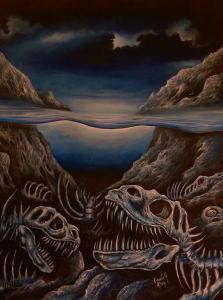
I'll be submitting 1 story a month again & hopefully putting together an anthology of The Pact's writings from last year.
I'll be editing Far Horizons Magazine on a monthly basis http://info-far-horizons.wix.com/far-...
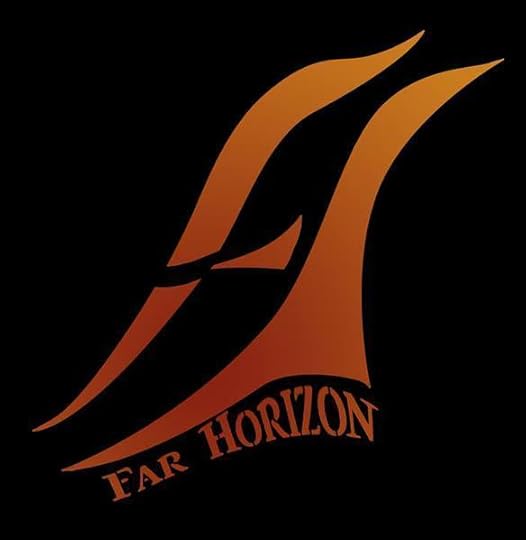
I'll continue to review books for Urban Fantasy Magazine - http://urbanfantasymagazine.com/
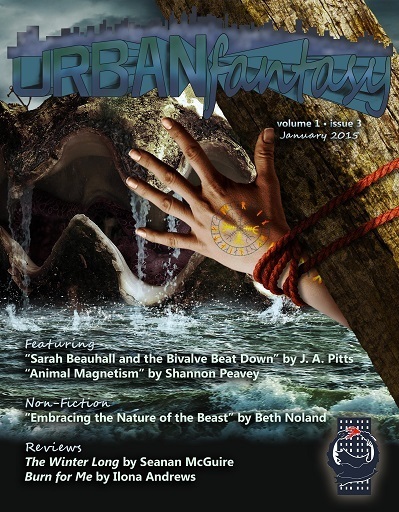
I hope to hear about my anthology (nominally called) Thunder and Magpies which is out for consideration with a publisher.
I will be finalising and submitting my novel (nominally called) Seven Deadly Swords to agents and publishers.
I'll be editing an anthology called Former Heroes for Far Horizons publishing.
I'll be at Archipelacon - http://www.archipelacon.org/
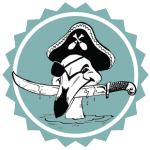
And Nine Worlds - https://nineworlds.co.uk/
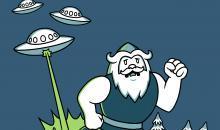
And, of course BristolCon - http://www.bristolcon.org/

And BristolCon Fringe - http://www.bristolcon.org/?page_id=2074
And Small Stories - https://www.facebook.com/SmallStories...
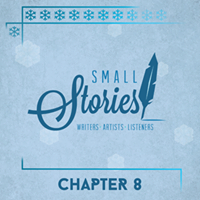
I'll be helping out at this year's National Flash Fiction Day - http://nationalflashfictionday.co.uk/
As well as Bristol Festival of Literature - http://unputdownable.org/
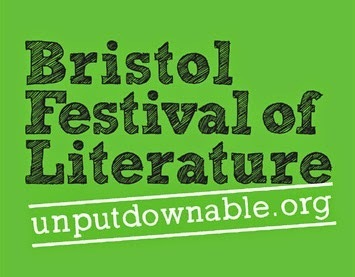
I'll be continuing to go to the Mr B's Book Group - The Emporium Strikes Back - http://www.mrbsemporium.com/
As well as review 1 book a month (my 2015 resolution is to only do 12 ARCs this year so that I can do some non-professional reading too) here on Bristol Book Blog
I hope to appear on the program at a few events too.
Busy & enjoyable literary year ahead! I will, of course, share it with you here.
The anthology North Bristol Writers have put together will be published - North by Southwest is with the publisher and things are happening. An ETA & ISBN etc will be provided soon.

My short story - "The body in the lake" will be published in Fossil Lake 2 - https://fossillake.wordpress.com/

I'll be submitting 1 story a month again & hopefully putting together an anthology of The Pact's writings from last year.
I'll be editing Far Horizons Magazine on a monthly basis http://info-far-horizons.wix.com/far-...

I'll continue to review books for Urban Fantasy Magazine - http://urbanfantasymagazine.com/

I hope to hear about my anthology (nominally called) Thunder and Magpies which is out for consideration with a publisher.
I will be finalising and submitting my novel (nominally called) Seven Deadly Swords to agents and publishers.
I'll be editing an anthology called Former Heroes for Far Horizons publishing.
I'll be at Archipelacon - http://www.archipelacon.org/

And Nine Worlds - https://nineworlds.co.uk/

And, of course BristolCon - http://www.bristolcon.org/

And BristolCon Fringe - http://www.bristolcon.org/?page_id=2074
And Small Stories - https://www.facebook.com/SmallStories...

I'll be helping out at this year's National Flash Fiction Day - http://nationalflashfictionday.co.uk/
As well as Bristol Festival of Literature - http://unputdownable.org/

I'll be continuing to go to the Mr B's Book Group - The Emporium Strikes Back - http://www.mrbsemporium.com/
As well as review 1 book a month (my 2015 resolution is to only do 12 ARCs this year so that I can do some non-professional reading too) here on Bristol Book Blog
I hope to appear on the program at a few events too.
Busy & enjoyable literary year ahead! I will, of course, share it with you here.
Published on January 06, 2015 01:25
December 30, 2014
Bristol Book Blog end of year Book Breakdown
I read 94 books in 2014 which is almost exactly half the amount of books read in 2013. I did write a novel, and a short story collection, and edit 8 issues of Far Horizons though, so time spent reading was obviously a lot less than in 2013 -about half I reckon!
I also went to a lot of cons and ran a few events so busy book year. Very satisfying and enjoyable though.
I read 21 ARCs in 2014 compared with 11 in 2013 - I think 1 per month is more doable than 2 per month so am going to make that promise to myself, no more than 1 ARC/Review copy per month.
18 books by women (and 7 by Various - including women contributors) which is actually a lower proportion than in 2013. Must do better next year!
18 e-books and 2 audio books shows that these are still not my favoured formats.
The following books rated "Brilliant" in 2014 - books that everyone should read, really outstanding and memorable. Highly recommended.
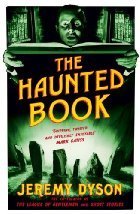
The Haunted Book by Jeremy Dyson
Excellent collection of ghost stories
Overall – Are you sure there is no-one behind you right now?
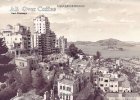
All over coffee by Paul Madonna
Overall – Poetic and artful
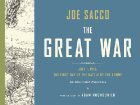
The Great War by Joe Sacco
Overall – Just beautiful, I wish I had a wall big enough to display it
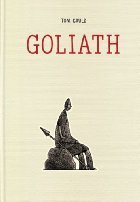
Goliath by Tom Gauld
Overall – Art & story in perfect harmony
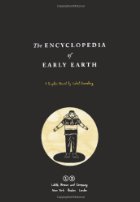
Encyclopedia of early Earth by Isabel Greenberg
Overall – very few books get quirky right, this one does
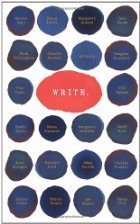
Write by The Guardian
Overall – Lots of writers talking about writing, what’s not to like?
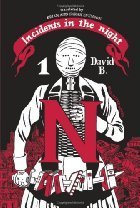
Incidents in the night by David B (translated by Brian Evenson)
Overall – Great art, great plot, great story
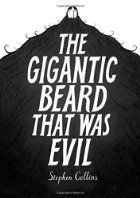
The gigantic beard that was evil by Stephen Collins
Overall – This is a book with a big idea, presented simply and beautifully rendered in A4 printed on high quality paper with a reassuring heft.
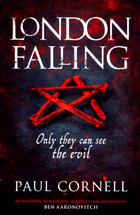
London Falling by Paul Cornell
Overall – Police procedural with supernatural elements, the start of what promises to be a great series.
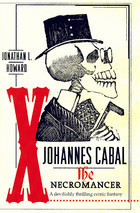
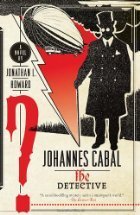
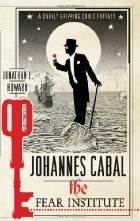

The Johannes Cabal series by Jonathan L Howard
I really don't understand why Howard isn't a bigger star, one of the best comic writers working in books at the moment.
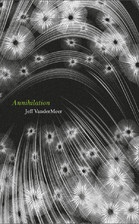
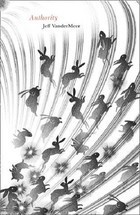
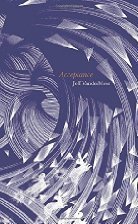
The Southern Reach Trilogy by Jeff VanderMeer
From the decision to release the entire trilogy in one year, to the weirdification of the Florida coast, to mouse detergent, definitely the best thing I've read for a long while. So good I read them twice, once as they came out and a second time one after another. Two different reading experiences. And I got to meet Jeff & Ann too which was great.
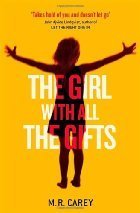
The girl with all the gifts by Mike Carey
Overall – Emotional and unputdownable. I stayed up late to finish this one, that doesn't happen often any more.
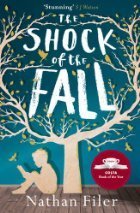
The Shock of the Fall by Nathan Filer
Overall – This very much deserves all the praise and hype, go and get a copy, now!
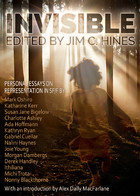
Invisible: Personal essays on representation in SF/F edited by Jim Hines
Overall – Slim but packs a mighty wallop.
Derek Handley (who is one of the essayists in the book) had this to say about representation- Representation is important. When you’re a kid, it’s about having a positive role model with your defining characteristics. When you’re an adult, it’s about being reminded that you fit in somewhere and escaping into that character. And when you’re going through a major life change, it’s about finding solace in stories that show you that someone understands and that maybe you can overcome the challenges you face.
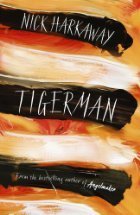
Tigerman by Nick Harkaway
Overall - Harkaway just seems to be getting better, if you like his other books go and get a copy
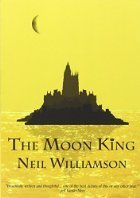
The Moon King by Neil Williamson
Overall - This is a very accomplished debut that deserves a wide readership. This is very much my sort of thing.

Do no harm by Henry Marsh
Overall - Honest insight into a career as one of Britains top neurosurgeons, heavy on the medical drama.
So that's it - 2014 is almost over and 2015 is round the corner, what will it hold for me? Well I'm hoping for good news on my short story collection, my novel will receive its final polish and start doing the rounds of agents and publishers and my writing group's anthology will be published thanks to all our lovely backers on Fundsurfer. I'll be at several cons (9 worlds, Archipelacon and BristolCon for sure so far) and busy on the local lit scene with Bristol Festival of Literature, North Bristol Writing and no doubt many other local lit scene events - as usual I'll blog about them as they happen!
Happy 2014! - See you in 2015
I also went to a lot of cons and ran a few events so busy book year. Very satisfying and enjoyable though.
I read 21 ARCs in 2014 compared with 11 in 2013 - I think 1 per month is more doable than 2 per month so am going to make that promise to myself, no more than 1 ARC/Review copy per month.
18 books by women (and 7 by Various - including women contributors) which is actually a lower proportion than in 2013. Must do better next year!
18 e-books and 2 audio books shows that these are still not my favoured formats.
The following books rated "Brilliant" in 2014 - books that everyone should read, really outstanding and memorable. Highly recommended.

The Haunted Book by Jeremy Dyson
Excellent collection of ghost stories
Overall – Are you sure there is no-one behind you right now?

All over coffee by Paul Madonna
Overall – Poetic and artful

The Great War by Joe Sacco
Overall – Just beautiful, I wish I had a wall big enough to display it

Goliath by Tom Gauld
Overall – Art & story in perfect harmony

Encyclopedia of early Earth by Isabel Greenberg
Overall – very few books get quirky right, this one does

Write by The Guardian
Overall – Lots of writers talking about writing, what’s not to like?

Incidents in the night by David B (translated by Brian Evenson)
Overall – Great art, great plot, great story

The gigantic beard that was evil by Stephen Collins
Overall – This is a book with a big idea, presented simply and beautifully rendered in A4 printed on high quality paper with a reassuring heft.

London Falling by Paul Cornell
Overall – Police procedural with supernatural elements, the start of what promises to be a great series.




The Johannes Cabal series by Jonathan L Howard
I really don't understand why Howard isn't a bigger star, one of the best comic writers working in books at the moment.



The Southern Reach Trilogy by Jeff VanderMeer
From the decision to release the entire trilogy in one year, to the weirdification of the Florida coast, to mouse detergent, definitely the best thing I've read for a long while. So good I read them twice, once as they came out and a second time one after another. Two different reading experiences. And I got to meet Jeff & Ann too which was great.

The girl with all the gifts by Mike Carey
Overall – Emotional and unputdownable. I stayed up late to finish this one, that doesn't happen often any more.

The Shock of the Fall by Nathan Filer
Overall – This very much deserves all the praise and hype, go and get a copy, now!

Invisible: Personal essays on representation in SF/F edited by Jim Hines
Overall – Slim but packs a mighty wallop.
Derek Handley (who is one of the essayists in the book) had this to say about representation- Representation is important. When you’re a kid, it’s about having a positive role model with your defining characteristics. When you’re an adult, it’s about being reminded that you fit in somewhere and escaping into that character. And when you’re going through a major life change, it’s about finding solace in stories that show you that someone understands and that maybe you can overcome the challenges you face.

Tigerman by Nick Harkaway
Overall - Harkaway just seems to be getting better, if you like his other books go and get a copy

The Moon King by Neil Williamson
Overall - This is a very accomplished debut that deserves a wide readership. This is very much my sort of thing.

Do no harm by Henry Marsh
Overall - Honest insight into a career as one of Britains top neurosurgeons, heavy on the medical drama.
So that's it - 2014 is almost over and 2015 is round the corner, what will it hold for me? Well I'm hoping for good news on my short story collection, my novel will receive its final polish and start doing the rounds of agents and publishers and my writing group's anthology will be published thanks to all our lovely backers on Fundsurfer. I'll be at several cons (9 worlds, Archipelacon and BristolCon for sure so far) and busy on the local lit scene with Bristol Festival of Literature, North Bristol Writing and no doubt many other local lit scene events - as usual I'll blog about them as they happen!
Happy 2014! - See you in 2015
Published on December 30, 2014 10:58
Pete Sutton's Blog
- Pete Sutton's profile
- 14 followers
Pete Sutton isn't a Goodreads Author
(yet),
but they
do have a blog,
so here are some recent posts imported from
their feed.



